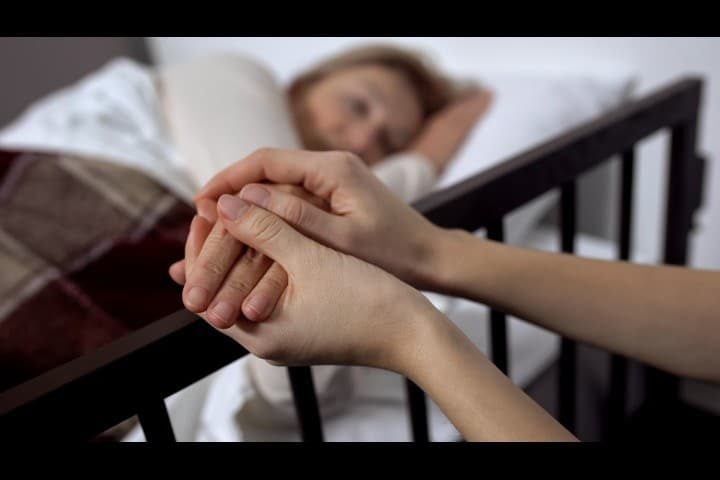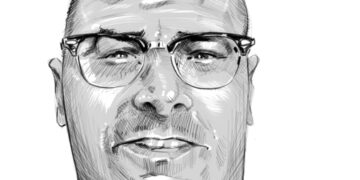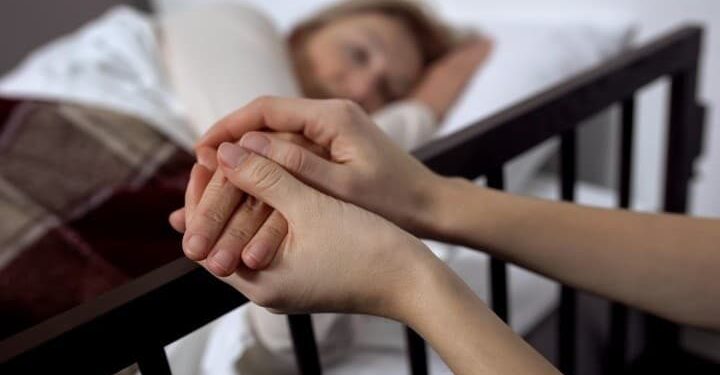
In the eight years since Canada legalized physician-assisted suicide, it has become “the fifth-leading cause of death in the country,” with some critics charging that the government’s ever-loosening restrictions on the practice have “turned [it] into euthanasia on-demand,” the Telegraph reported last week.
Canada passed legislation in 2016 allowing medical assistance in dying (MAiD) for patients with terminal illnesses. Five years later, Ottawa liberalized the law, permitting patients with merely incurable illnesses to obtain MAiD.
“They basically turned medical assistance in dying into euthanasia on-demand,” University of Toronto law professor Trudo Lemmens told the Telegraph.
The result: “Canada now has the fastest-growing assisted dying program in the world.”
Third Time’s an Alarm
The Telegraph recounted the story of a 51-year-old Nova Scotia woman with breast cancer who was offered MAiD three times during the course of her treatment: before her first and second mastectomies and while recovering from the second. Naturally, the woman was horrified by this, saying it “made her feel like a burden to doctors and that people in her position ‘were better off dead.’”
“I felt like a problem that needed to be [gotten] rid of instead of a patient in need of treatment,” she said.
She also put her finger on the cause of the country’s headlong euthanasia plunge: socialism.
“The wheels of benefits and support turn too slow and the wheels of MAID turn too fast,” she said. “That is simply the situation we’re in right now as a society that considers itself progressive.”
The Telegraph asserted that MAiD is being “used to mask the cracks in Canada’s crumbling healthcare system”:
Figures show that around a quarter of Canadian adults do not have a family doctor. There is also an acute shortage of palliative care spaces, with hospices containing just over half the number of beds needed.
The cancer patient who was offered the program before her mastectomy has been waiting for an appointment at a specialist pain clinic for the past year. “However, if I were to call the MAID hotline this morning, I’d be talking to a doctor tomorrow afternoon,” she said.
Dr Leonie Herx, a palliative medicine consultant in Calgary, said that staff-shortages are so bad in some Canadian hospitals that patients who are not at risk of imminent death are offered MAID before they’ve even had a chance to see a palliative care consultant.
Welfare Cases
Canada’s welfare state, meanwhile, does such a substandard job of supporting poor and disabled people that they increasingly request — and are often granted — MAiD for nonterminal illnesses. According to The Associated Press:
In Ontario, more than three quarters of people euthanized when their death wasn’t imminent required disability support before their death in 2023….
People euthanized with nonterminal conditions were “more likely to live in neighborhoods where there’s higher levels of residential instability, higher material deprivation and greater dependency on government support,” Ontario Chief Coroner Dr. Dirk Huyer said.
The AP obtained content from private internet forums where Canadian doctors and nurses discuss MAiD cases:
The discourse about patients who are poor, disabled or lonely shows a fraught process where medical professionals test the limits of what conditions warrant euthanasia.
For example, “A middle-aged worker whose ankle and back injuries made him unable to resume his previous job told his doctor that the government’s measly support was ‘leaving (him) with no choice but to pursue MAiD.’” The doctor who posted the story said “the patient met legal criteria, with severe pain, strained social relationships and inability to work,” but the physician had qualms about euthanizing him. Others in the forum, however, “agreed” that he was eligible for MAiD “and assured the doctor the man was clearly in pain.”
A homeless man with lung disease who feared living in a nursing home was euthanized. One person who responded to the post on his case said the prospect of “looking at the wall or ceiling waiting to be fed … to have diapers changed” was painful enough to justify MAiD.
The AP further reported:
One provider said any suggestion they should provide patients with better housing options before offering euthanasia “seems simply unrealistic and hence, cruel,” amid a national housing crisis.
Other doctors discussed the legality of euthanizing patients with obesity. One, apparently having never heard of dieting and exercising, said it qualifies for MAiD because it is “irremediable.”
Patients with blindness or grief were also considered MAiD-eligible by at least some physicians, one of whom claimed he “had much ease in” euthanizing a grieving widow “and had no pushback from the coroner.”
A Little More MAiD?
Despite all this, there are those who believe obtaining MAiD ought to be made even easier. After the government delayed a planned expansion of MAiD to the mentally ill, a pro-euthanasia group sued, claiming it’s “discriminatory” not to let people who clearly aren’t thinking straight choose death by doctor. Quebec, which already has the highest euthanasia rate in the world, is about to let patients give their doctors advance directives to kill them in the event of their incapacity to consent.
Unfortunately, between the culture of death and the failures of socialism, the push for ever more euthanasia isn’t going away. The United Kingdom, whose National Health Service is $48 billion in the red, is considering its own assisted-suicide law.
When Labor Party leader Kim Leadbeater introduced the bill in the House of Commons Wednesday, she assured people that it would only apply to the terminally ill, not the disabled or mentally ill, because it will have “protections and safeguards” to prevent that.
That, of course, is exactly what Canadian politicians said in 2016.











































